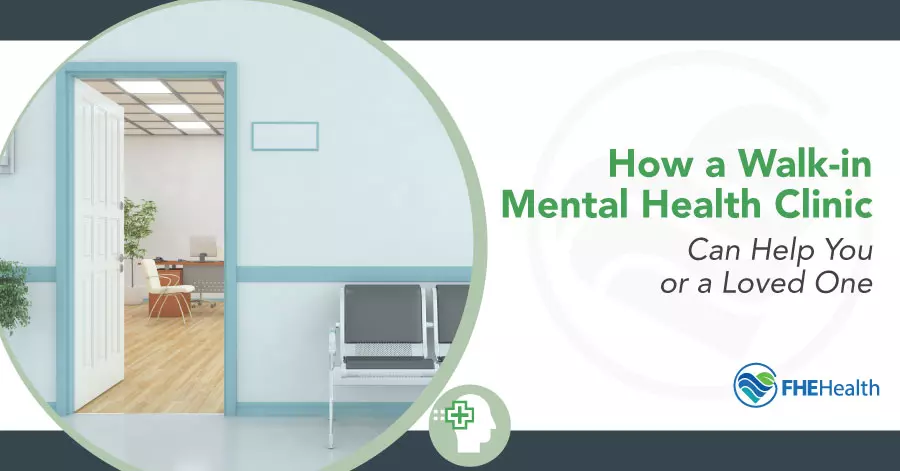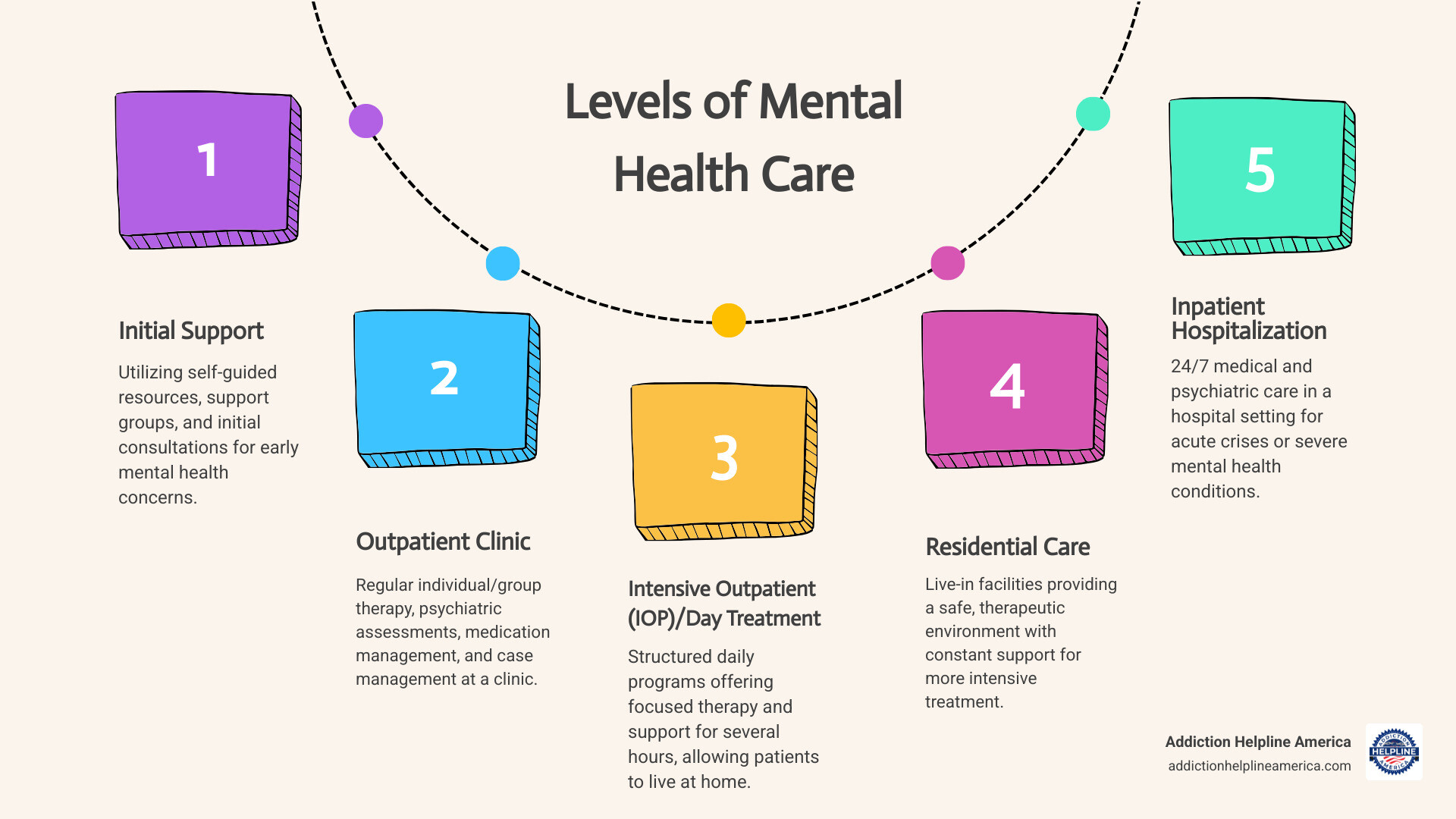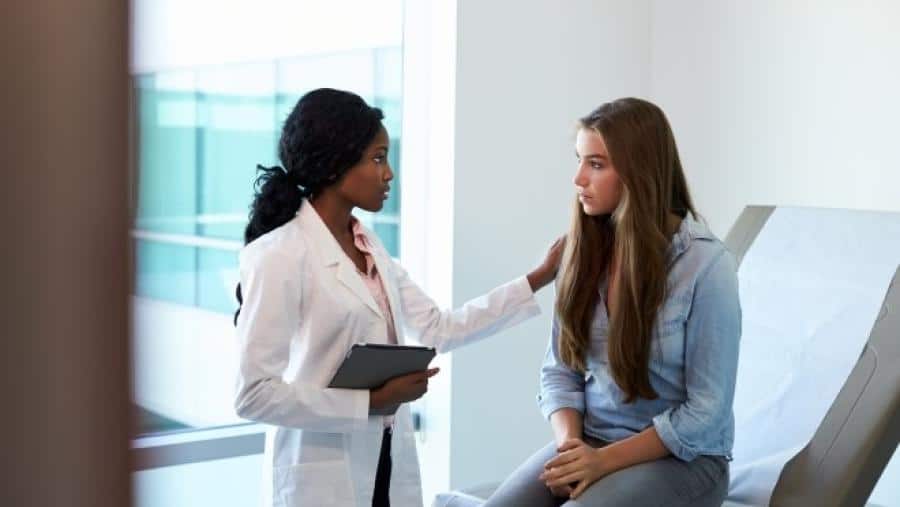
Understanding Your Options for Mental Health Support
A mental health clinic is a specialized facility providing assessment, treatment, and support for individuals with mental health challenges, substance use disorders, or co-occurring conditions. These clinics are staffed by diverse teams of psychiatrists, psychologists, counselors, and social workers who offer a structured path to recovery.
At a typical clinic, you can expect a range of services, including psychiatric evaluations, individual and group therapy, and medication management. Many also provide specialized programs for addiction, eating disorders, or perinatal mental health. Care is delivered at various levels of intensity—from standard outpatient visits to more structured intensive outpatient (IOP) or day treatment programs. Access is often flexible, with options for scheduled appointments, walk-ins, and virtual care.
Clinics use evidence-based approaches like Cognitive Behavioral Therapy (CBT) and Dialectical Behavior Therapy (DBT) to treat conditions such as depression, anxiety, PTSD, and bipolar disorder. They serve as a critical bridge between emergency services and long-term community support, often offering sliding scale fees and culturally competent care to ensure treatment is accessible.
At Addiction Helpline America, we’ve helped thousands of individuals and families steer the often-confusing landscape of mental health and addiction treatment. We understand the challenges of finding a quality mental health clinic, especially when time is critical.

What is a Mental Health Clinic and What Services Do They Offer?
Think of a mental health clinic as a partner in your recovery. Its mission is to help you build resilience and improve your quality of life through patient-centered care. Rather than seeing you as a diagnosis, clinicians work with you to create a care plan that fits your life and goals.
You’ll meet a multidisciplinary team of professionals, which may include psychiatrists for medication, psychologists for therapy, and social workers to connect you with resources. This team-based approach ensures every part of your well-being is addressed. They use evidence-based practices—treatments proven by research to be effective—to create an individualized plan just for you.

Core Services and Therapeutic Approaches
Most clinics offer a foundation of services to address a wide range of needs. Your journey often begins with a psychiatric assessment to establish an accurate diagnosis. From there, core services may include:
- Medication Management: A psychiatrist prescribes and monitors medications, often in conjunction with therapy.
- Individual Psychotherapy: One-on-one “talk therapy” helps you explore thoughts and feelings and develop coping strategies.
- Group Therapy: Connecting with others facing similar struggles provides a supportive environment to learn new skills and realize you’re not alone.
- Family Counseling: These sessions help improve communication, resolve conflicts, and strengthen family bonds that support recovery.
- Case Management: A case manager helps you steer the healthcare system and connects you with community resources.
Common therapeutic approaches include Cognitive Behavioral Therapy (CBT) to change negative thought patterns, Dialectical Behavior Therapy (DBT) to manage overwhelming emotions, and specialized Trauma-Focused Therapy to process traumatic memories.
Specialized Programs for Diverse Needs
Many clinics offer specialized programs custom to specific conditions or populations, ensuring you receive care that fits your unique situation. These can include:
- Addiction and Co-occurring Disorders Services: Integrated programs that treat both mental health and substance use challenges simultaneously for a whole-person approach.
- Perinatal Mental Health: Support for individuals during pregnancy and after childbirth, when mood and anxiety disorders can emerge.
- Eating Disorder Programs: A combination of therapy, nutritional counseling, and medical monitoring for conditions like anorexia and bulimia.
- Geriatric Psychiatry: Focused care for older adults facing depression, anxiety, or dementia-related behavioral issues.
- Child and Adolescent Services: Age-appropriate care for young people dealing with anxiety, ADHD, and other concerns.
These specialized tracks demonstrate how a mental health clinic adapts to meet you exactly where you are.
Learn more about specialized treatment programs
Call Now – Your Journey to Recovery Begins Today!

Take the first step towards a healthier life! Call now to connect with our compassionate team and start your recovery journey today. Your path to healing awaits!
Our recovery specialists are available 24/7 to provide support, and all calls are confidential and free. Reach out anytime – we’re here to help!
Finding the Right Mental Health Clinic for You
Choosing a mental health clinic doesn’t have to be overwhelming. Focusing on a few key factors can help you find care that fits your life and needs.
First, consider location and convenience. Many county-operated behavioral health clinics and state resource websites list locations and hours to help you find something nearby. At the same time, virtual care has become a popular alternative, offering therapy through secure video calls. Ask clinics what they offer virtually versus what requires an in-person visit.
It’s also important to consider who the clinic serves. Some clinics welcome everyone, while others specialize in supporting groups like veterans, young adults, or seniors. Government resources like SAMHSA’s Treatment Locator can help you find programs custom to specific populations. Accessibility is also key, which includes not only physical access but also culturally competent care and language interpretation services to ensure you feel understood and respected.

How to Access Care and What to Consider
Getting started at a mental health clinic can happen in several ways. Many clinics work through physician referrals, while others allow for self-referral, which is common for addiction or eating disorder services. For more immediate needs, some community clinics offer walk-in hours. When you connect, be sure to discuss insurance and payment. Most clinics accept various insurance plans, and many offer sliding scale fees based on income.
Finding a place where you feel genuinely cared for is crucial. Look for age-specific programs if you’re seeking help for a child, teen, or older adult. If you’re dealing with a specific issue like an eating disorder, seek a clinic with specialized expertise. For LGBTQ+ individuals, finding affirming care is essential, so ask about a clinic’s approach to ensure it’s a safe space. Finally, language and cultural background should never be barriers to care. A good clinic will offer interpretation services and culturally sensitive support that respects your identity and values.
We know this is a lot to consider, but you don’t have to figure it out alone. That’s why we’re here.
Find local resources and services
What to Expect During Treatment and Beyond
Starting treatment at a mental health clinic is a dynamic process. It begins with an initial assessment, but the care evolves from there.
Following your assessment, you’ll participate in collaborative treatment planning. This is a partnership between you and your care team to define your goals, whether that’s reducing symptoms, improving daily function, or strengthening relationships. Your voice is central to this process.
Many clinics use a stepped care model, matching you to the right level of care based on your needs. As you progress, your care might “step down” to less intensive services. If you need more support, it can “step up.” This flexibility is ensured through regular progress reviews, where your team checks in on your goals and adjusts your treatment plan as needed.
Beyond therapy, clinics provide patient and family support through educational workshops and support groups. They also facilitate community partnerships, referring you to external resources like housing or vocational services. The integration of telemedicine offers continuity of care through virtual follow-ups, which is especially helpful for those with mobility or transportation challenges. You can expect ongoing support focused on relapse prevention and maintaining long-term wellness.
How Clinics Handle Crisis and Emergency Situations
When facing a mental health crisis, it’s crucial to know where to turn. While a mental health clinic is vital for ongoing care, most are not equipped for immediate, life-threatening emergencies.
Clinics typically operate on a scheduled basis for structured treatment. True emergencies require more immediate resources. If you or someone you know is in immediate danger, has attempted self-harm, or is in a life-threatening mental health crisis, call 911 or go to the nearest emergency department without hesitation. Emergency rooms are staffed 24/7 to provide immediate stabilization and safety.
That said, many clinics have crisis protocols for urgent situations during business hours. As a current patient, you may be able to get same-day support or have your treatment plan adjusted. Some clinics also offer walk-in hours for urgent needs. Proactively, therapists often work with patients on safety planning—a personalized roadmap that outlines warning signs, coping strategies, and who to call when you feel unsafe.
A growing resource for crisis care is Mobile Crisis Intervention Teams (MCITs). These teams, often composed of mental health professionals, provide on-site assessment and de-escalation in the community. They are typically accessed through local crisis hotlines or non-emergency police lines.
If you or someone you care about is in crisis right now, these resources are available 24/7:
- 988 Suicide & Crisis Lifeline: Call or text 988 anytime in the U.S. to connect with trained crisis counselors. This service is free, confidential, and available 24/7.
- SAMHSA National Helpline: Call 1-800-662-HELP (4357) for free, confidential support and treatment referrals in English and Spanish.
- Local crisis hotlines and community crisis support programs can connect you with resources specific to your area, including mobile crisis teams.
At Addiction Helpline America, we understand that crises don’t follow a schedule. While we specialize in connecting people to ongoing treatment, we want to ensure you know where to turn in an emergency. Help is always available.
Frequently Asked Questions about Mental Health Clinics
Many people have the same questions when exploring mental health support. You’re not alone in wondering these things. Let’s walk through some common concerns.
Call Now – Your Journey to Recovery Begins Today!

Take the first step towards a healthier life! Call now to connect with our compassionate team and start your recovery journey today. Your path to healing awaits!
Our recovery specialists are available 24/7 to provide support, and all calls are confidential and free. Reach out anytime – we’re here to help!
When should I consider a mental health clinic?
If you’re asking this question, it’s probably a good time to explore your options. Consider a mental health clinic if you’re experiencing persistent symptoms like sadness, anxiety, or hopelessness that aren’t improving. Another sign is difficulty with daily functioning, where your mental health interferes with work, school, or relationships. If you feel constantly overwhelmed or find that self-help isn’t enough, professional support can offer new tools and perspectives. Simply having a desire for professional support is reason enough. You don’t need to be in crisis to seek guidance for your well-being.
How much does a mental health clinic cost?
Cost is a major concern, but there are many pathways to affordable care. The price varies widely depending on your situation.
- Publicly Funded Services: Many county and state-operated clinics offer services for free or at a very low cost to eligible residents.
- Private Insurance: Most insurance plans are required to cover mental health benefits. Check with your provider about your specific deductible, co-pays, and coverage. SAMHSA’s treatment locator can filter facilities by the insurance they accept, including private plans, Medicare, and Medicaid.
- Sliding Scale Fees: Many non-profit and community clinics adjust their fees based on your income to make care more affordable.
- Employee Assistance Programs (EAP): Your workplace may offer a set number of free counseling sessions as part of your benefits package.
At Addiction Helpline America, our service is free, and we can help you find treatment options that fit your budget and insurance.
How long does treatment at a mental health clinic typically last?
The duration of treatment is highly personal and varies by need. There is no one-size-fits-all timeline. Some people may only need short-term crisis care focused on stabilization. Others might enroll in time-limited programs, like an intensive outpatient program (IOP) that runs for a set number of weeks.
For those with chronic conditions, treatment may involve long-term support, including ongoing medication management and therapy to maintain stability and prevent relapse. As you make progress, many clinics use a stepped-down care model, gradually decreasing the intensity of treatment as your coping skills improve. The goal is always to empower you to manage your mental health as independently as possible.
Conclusion
We’ve covered a lot of ground, and your interest shows you’re serious about understanding how a mental health clinic can help. That’s a powerful first step.
As we’ve learned, mental health clinics are comprehensive care centers with dedicated teams ready to support you. They offer everything from psychiatric assessments to specialized programs for a wide range of needs. Finding the right fit involves considering practical factors like location and insurance, as well as personal ones like cultural competency and a feeling of safety. Treatment is a partnership, with care plans that adapt as you grow stronger. And in a crisis, you now know that immediate help is always available through resources like the 988 Lifeline.
Seeking help from a mental health clinic is an act of strength. It’s taking control and affirming that you deserve to feel better. Mental health is health, and caring for your mind is just as important as caring for your body.
Call Now – Your Journey to Recovery Begins Today!

Take the first step towards a healthier life! Call now to connect with our compassionate team and start your recovery journey today. Your path to healing awaits!
Our recovery specialists are available 24/7 to provide support, and all calls are confidential and free. Reach out anytime – we’re here to help!
This is where Addiction Helpline America comes in. We know that taking the next step can feel overwhelming. Our team provides free, confidential guidance to help you steer your options and connect with the right treatment program from our nationwide network of providers. We’ve walked this path with thousands of people, and we’d be honored to walk it with you.
You don’t have to do this alone. Reach out today.
Find the best mental health treatment near you
Our helpline is 100%
free & confidential
If you or someone you care about is struggling with drug or alcohol addiction, we can help you explore your recovery options. Don’t face this challenge alone—seek support from us.
Programs
Resources
Will my insurance
cover addiction
treatment?
We're ready to help
Find the best
drug or alcohol treatment
center
Are you or a loved one struggling with addiction? Call today to speak to a treatment expert.















